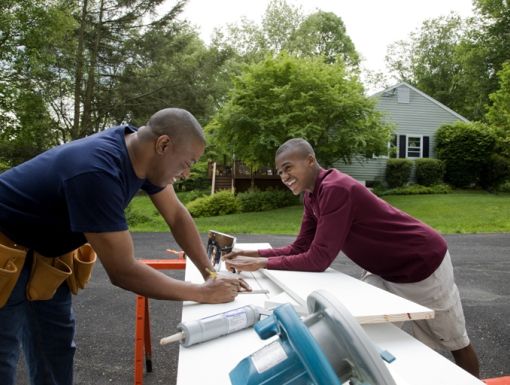
When Should a Teen Start Seeing a Gynecologist?
When your daughter enters her teenage years, you may start to wonder when the right time for her is to see a gynecologist. The answer can vary, but The American College of Obstetricians and Gynecologists currently states between 13-15 years old, around the average age of menstruation. This appointment will typically just cover the basics, and unless there is an underlying issue, it will not involve a pelvic exam. Letting your daughter know this ahead of time may help put her nerves at ease.
What should you expect at the first gynecological visit?
A teenager's first gynecological visit is a great opportunity to talk with their physician about any questions or concerns they may have. The appointment typically starts with a general physical exam, including height, weight and blood pressure measurements. As females, your gynecologist may be the only doctor you see in the year, so it is important to make sure your general health is where it should be.
Once brought back to the exam room, the physician may talk with her about what she can expect at future visits and ask a few questions about her health and family history. While some of the questions may seem personal, including questions about her menstrual period, know that the doctor is there to help provide the best care possible.
The gynecologist might also perform a brief external genital exam to look at her vulva, the external female genital area. The physician might also provide her with a mirror to learn more about her body and the names of different body parts.
While a pelvic exam is typically not needed, unless abnormal bleeding or pain occurs, it is important to know what will happen during these exams when they arise later. Currently, recommendations state that a pelvic exam and Pap smear should occur at 21 years of age unless issues occur before that date. During a pelvic exam, the gynecologist will check the internal organs by placing one or two gloved, lubricated fingers into the vagina and up to the cervix. The other hand will press on the abdomen from the outside. The physician will also look at the vulva, the vagina and cervix (the lower, narrow end of the uterus at the top of the vagina). To examine these areas, the doctor will use a speculum, which is an instrument used to hold open the walls of the vagina. Your physician might also perform a Pap smear, which is a test that checks for abnormal changes in the cervix that could lead to cancer. While the speculum is in place, the doctor will use a small brush to take samples of cells from your cervix. While these exams might cause slight pressure, they should not cause any pain.
What questions might the gynecologist ask?
It is important to know that this first appointment is generally an opportunity to talk about development and establish a relationship with the gynecologist so that your daughter feels comfortable moving forward.
The gynecologist may ask to speak to the patient by herself. This allows the patient to ask her physician any questions that she may be embarrassed to ask in front of her parent or legal guardian. During the visit, the physician may counsel the patient about risky behavior, including drinking, smoking, drug use and unprotected sex. Unless your daughter is doing something that may harm herself, much of the information will stay confidential between the patient and her physician.
Other topics the gynecologist may discuss with the patient and her guardian are vaccinations or immunizations that may help prevent certain diseases. The human papillomavirus (HPV) is a sexually transmitted disease that can cause cervical cancer. The Gardasil vaccine is a series of three doses and is recommended for girls and boys. It is best to get it between the ages of 9-12, but non-vaccinated patients can receive it up to 45 years of age.
How often will a teen need to see a gynecologist?
After the first visit, another one might not be needed for a few years unless other issues arise. The gynecologist will be able to guide you on the best schedule. If problems occur, like irregular periods or yeast infections, an appointment should be made.
Learn more about Ochsner Women’s Services: https://www.ochsner.org/services/womens-services.



